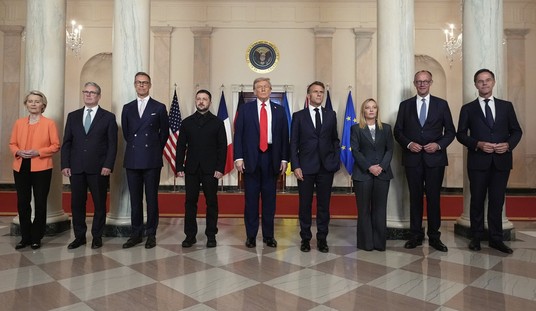One of the biggest and potentially most beneficial results from efforts at “police reform” over the past several years is the much wider use of body cameras by law enforcement officers. Given that activists suspicious of law enforcement during use-of-force encounters wanted them and the police officers themselves were broadly in favor of the idea it seemed like a win-win. What’s to complain about, assuming they are properly used and always turned on?
Surprisingly you can find somebody to kvetch about anything I suppose. There’s a group called the Leadership Conference on Civil and Human Rights which is releasing a report today targeting potential abuse of body cam footage. Or at least whatever qualifies as their definition of abuse in this case. The question at hand is whether or not the cops should be able to review the footage from their own cameras prior to writing up a report on any incidents under investigation. It would seem that their foregone conclusion is that they should not. (Associated Press)
A new report by the Leadership Conference on Civil and Human Rights and Upturn Research to be released Tuesday shows that the vast majority of the nation’s largest police departments allow officers to view the footage before writing a police report or being questioned by investigators during use-of-force cases. The group believes that policy undermines police credibility and runs the risk of influencing how the officer describes what happened.
Rather than ensuring their account is accurate, the advocacy groups say, “reviewing footage — consciously or not — can distort what officers claim to remember and what they write in their reports. Reports aided by footage review are ultimately less accurate, because they no longer capture an officer’s own independent recollection of events.”
But law enforcement officials and some experts say it’s important to have officers view the footage beforehand to ensure that police accounts of incidents are accurate.
I realize that we have groups out there who are automatically suspicious of the cops in all circumstances and assume that they’re up to no good. But even taking that as a starting point, what exactly is the suspicion here? Or to phrase that differently, what is the devious plan the police are supposedly up to if they review the footage from an incident they were involved in?
This simply makes no sense. If you force the police to write up the report or provide testimony without reviewing the footage and they forget or misremember some detail, that can easily be refuted when everyone else views the footage. And the cops are aware of that too. Why would any police officer knowingly put something false in a report when they know that the body cam recordings will just prove them wrong?
It sounds as of this groups is simply looking for a way to discredit officers and cast doubt on their reporting. Keep in mind also that most body cams only record what’s going on directly in front of the officer. They’re not going to pick up activity to the side or behind them which the officer may observe through peripheral vision or by turning their head. You may still have to rely on their memory, written reports or testimony for those details.
Body cams were a great innovation because it helps both the public and the police. On the thankfully rare occasions when you do come across a bad apple in uniform, such footage can help take that person off the force and even face prosecution where appropriate. And for the millions of police officers who diligently and honorably perform their work, such footage can help clear them of false accusations from criminals and their accomplices. If we’d had body camera footage of the final encounters with both Michael Brown and Freddie Gray, two cities might not have burned and countless riots might have been avoided. Let’s not start tearing down a system which is, with few unfortunate exceptions, really working out well.








Join the conversation as a VIP Member